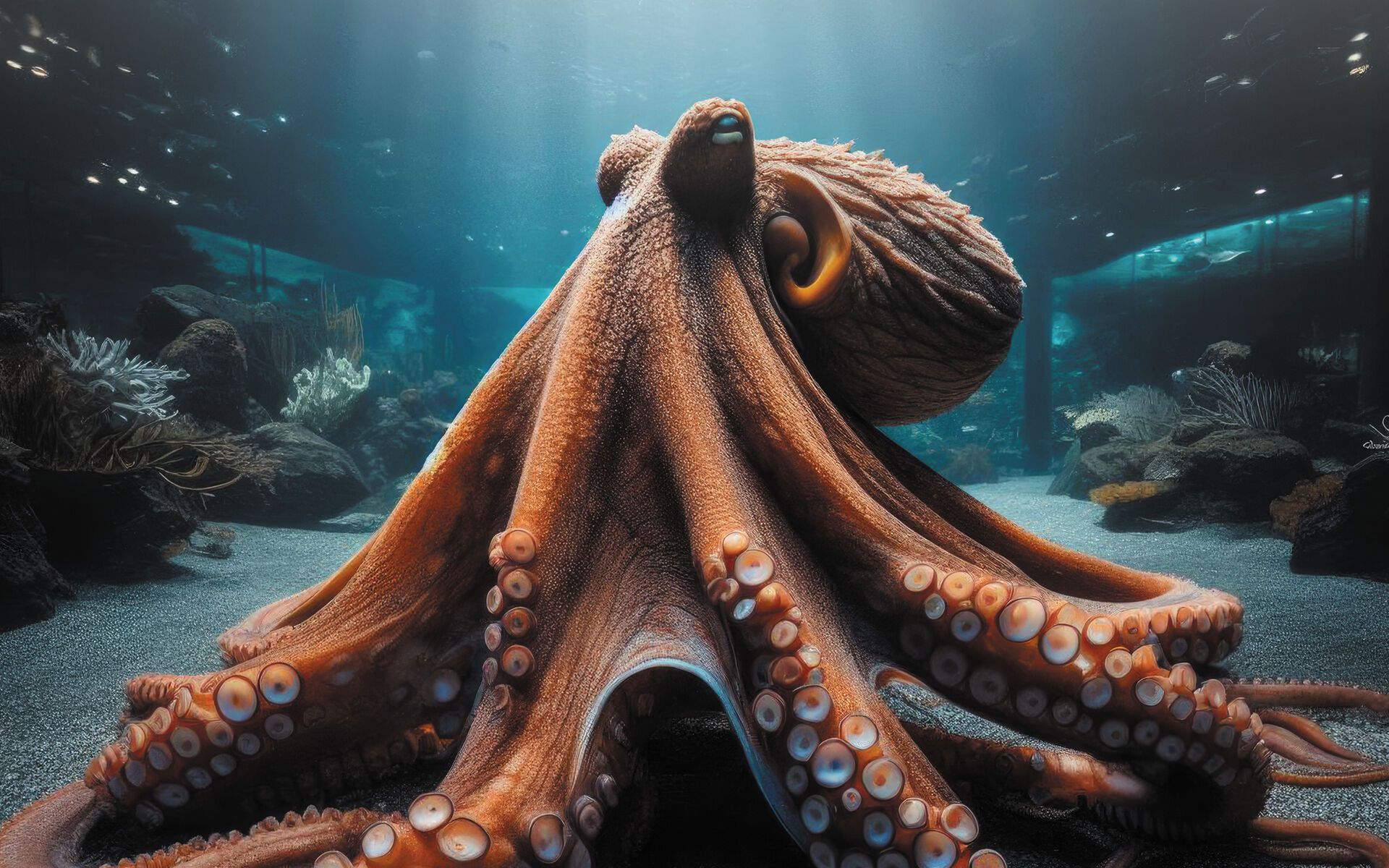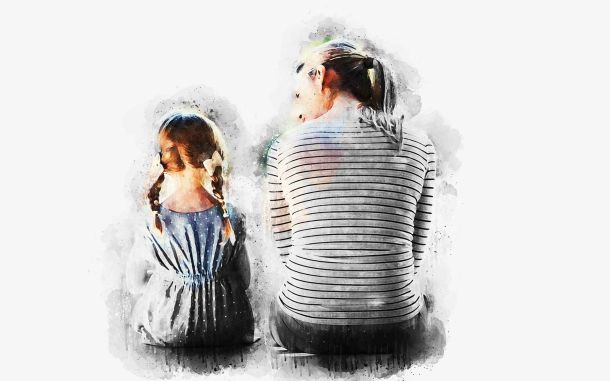A Trip to the Zoo

In This Article
-
Many people learned in school that only octopuses possess independent use of each arm, enabling them to move, touch, and taste with a single motion. Is it a social expectation that people will be able to accomplish the same thing?
-
Why should anyone allow texts, calls, voicemails, emails, and other forms of communication to wield control over their lives? Switching these modes on and off should never instill feelings of obligation or guilt.
Is the development of modern technology causing people to become programmed octopuses? Are people attempting to do too much at once? Many people learned in school that only octopuses possess independent use of each arm, enabling them to move, touch, and taste with a single motion. Is it a social expectation that people will be able to accomplish the same thing?
In a matter of seconds, an individual might find themselves inundated with a barrage of beeping noises, flashes of blue light, ceaseless vibrations, music ringtones, and instantaneous notifications on a daily basis. How can anyone manage these outside factors while remaining productive? It would be very simple to Google every response to these inquiries, but looking for answers elsewhere would be more interesting. A visit to the neighborhood zoo sounded like a unique place to seek unconventional truth and wisdom.
The journey commenced with a ride on public transportation. Amidst the usual clamor of a city bus, a persistent cell phone ringing and buzzing added to the already jarring ambiance. Though challenging to disregard, for now, savoring the moment seemed the wiser choice. A quick scan of the passengers revealed a collective absorption in their electronic devices, their necks uncomfortably craned. Was anyone else intending to sidestep distractions today? The obvious answer was no. Briefly, the window view held more allure than the bustling scene within the packed noon bus. The familiar congestion of city traffic lay unavoidable. Suddenly, an overcast sky, blossoming flowers, and a gentle, damp grass-scented breeze in the distance beckoned. In a burst of volume, the bus driver announced, 'Next stop, Zoopark.
Visiting the zoo used to be an exhilarating adventure, a time when the anticipation of seeing monkeys, zebras, and giraffes was all that truly mattered, over three decades ago. Today, however, everything feels different. This excursion has transformed into a search for answers, an endeavor to seek out cosmic signs. The zoo now represents the perfect sanctuary, a place to unwind, disconnect, and detach from the ceaseless technological intrusions that constantly besiege humanity. The first act of bravery for the day involved powering down all electronic devices.
At the entrance of the zoo, a life-size T-Rex, an 18-foot giraffe, and a grizzly bear greeted visitors. These meticulously crafted statues were skillfully assembled using recycled materials. As we queued for entry, a school bus arrived, and excited children rushed towards the plastic figures, embracing them and meticulously examining every detail of their construction. Once inside, a lovely nature park with gardens, lakes, and lawns opened into a beautiful wildlife park. Numerous well-maintained habitats and expansive green areas bore more resemblance to jungles, farms, caves, and verdant woods rather than outdated cages or condemned spaces. Animals strolled freely without posing any threat to visitors or their fellow inhabitants, engaging in playful runs and enjoying peaceful naps or rest in sheltered nooks. The path for visitors was clearly delineated with vibrant arrows, accompanied by the addition of modern metal benches, quaint lakes, wooden bridges, and charming rock pathways. The deer exhibit was the first stop. About forty white-tail deer were grazing together in what appeared to be a man-made forest. There was no running, chasing, snorting, or bleating. They were relaxing, napping, exploring, and just enjoying the view. The environment was serene. Some were sleeping while others strutted around proudly showing off their antlers. It was a calm afternoon, and they loved it.
Reflecting on the past, a biology teacher had once asserted that deer were social creatures known for their ability to relish the present moment. Her words rang true. When walking down a hill, a jungle replica emerged in the background. A magnificent creature was skillfully lying down on a branch. It had the appearance of a large cat. He was light in color with dark spots and was slender but strong. A skeletal rat that dared to approach his food bowl caught his attention. Anyone could see that the leopard was going after him. But he showed no sign of urgency. He waited for the right moment with patience. The fierce animal was carefully positioned, waiting for the right opportunity to attack. He remained still, focusing solely on his goal. No yelling or sudden movements. What a wonderful example of patience, knowing that it will materialize at some point.
All instincts led visitors to the indoor exhibits as the drizzle started. An ant colony can be seen within a glass enclosure. Who has ever paid such close attention to these tiny creatures? There were hundreds of them! In a coordinated procession, they marched in a single file, each one assisting the other in transporting what appeared to be miniature leaves. Working together diligently, they ensured not a single fragment was left behind. A brief glance revealed their unwavering commitment, as not one of these industrious insects strayed from the orderly line.
Adjacent to the ant farm, a captivating exhibit showcasing spiders immediately captured everyone's attention. Encased in a notably larger, tempered glass enclosure compared to the ants', the spiders were scattered amidst a lifelike model rainforest, with the majority skillfully navigating their way up and down miniature trees and leafy shrubs. Their unwavering focus while spinning intricate webs was nothing short of impressive. These resilient creatures exhibited remarkable persistence; if their web was ever disrupted, they diligently mended it, persisting until their work was completed. Despite the fleeting nature of time, they displayed a composed determination, steadily working to achieve their goals, a testament to their admirable resilience.
As visitors departed from the zoo, a prominent, brightly lit announcement caught their attention, introducing the latest addition: the Aqua Aquarium, featuring a brand-new exhibit. Much to their amazement, a 24-inch common octopus was showcased within a colossal tank. The observers were left in awe of the mollusk's remarkable dexterity, effortlessly multitasking with each of its limbs. How do they manage to eat and swim while seamlessly changing their skin hue? What an impressive display of abilities! It was evident they were flaunting their prowess. This served as a stark reminder that humans, despite their efforts to minimize distractions, are truly unable to multitask simultaneously; this exclusive skill is reserved only for members of this exceptional species.
The bus ride back was notably more tranquil, prompting a medley of contemplations. Deliberately disconnecting from the external world proved to be surprisingly delightful. An unanticipated sense of liberation permeated the atmosphere. Choosing to embrace and savor the present moment, unencumbered by technology and its array of distractions, revealed a realm of boundless possibilities. Why should anyone allow texts, calls, voicemails, emails, and other forms of communication to wield control over their lives? Switching these modes on and off should never instill feelings of obligation or guilt.
When is multitasking necessary to demonstrate our dedication or efficiency? Each individual can make sensible choices about their actions and timing. Why must technology emerge victorious every time? Responses will undoubtedly vary. Nonetheless, one should consciously opt to unwind, exercise self-discipline, and embrace the present moment, irrespective of external distractions, to truly prioritize their concentration. It is crucial to bear in mind the significance of addressing each task individually as it arises. It sounds simpler said than done.
Upon reflection, the tranquil demeanor of the deer at the zoo encapsulated the essence of this sentiment. There was no rationale for fretfulness or hastened existence. Every action, be it feeding, resting, or socializing, adhered to a specific schedule. The magnificent leopard exemplified the virtue of prudence and the importance of methodical planning. No one should be subjected to undue stress by attempting to conclude tasks quickly and simultaneously. The concept of taking one step at a time emerges as a straightforward strategy for accomplishing any objective.
Reminiscing about the distant echoes of the lions' resounding roars as we passed by their enclosure, an immediate connection was established with their courage. Taking a day off from work to recalibrate and prioritize life required a substantial degree of determination. While it may be a challenging decision to make, everyone should contemplate it. Pausing momentarily to relish life's smaller joys felt truly extraordinary.
Recognizing the value of collaborating with others to prevent burnout was a hard lesson to grasp. Ants shared the load and carried it collectively rather than individually. Observing the ants' collective burden-sharing approach underscored the significance of dividing any task into manageable segments, thereby facilitating a more straightforward focus on individual elements. Allocating dedicated time for concentrated and efficient work entails setting aside unproductive pursuits. Striving for daily productivity is a commendable objective. Furthermore, honing the skill of identifying personal triggers and acknowledging the factors that divert one from their path is an important skill to develop. It's essential to be surrounded by things that are significant and have an impact. It may be spending time with loved ones, engaging in hobbies, playing with pets, reading a good book, meditating, doing yoga, or anything else that gives a feeling of happiness and fulfillment.
Today was perfect. A visit to the zoo and reconnecting with nature served as a reminder that prioritizing tasks is integral to maintaining focus and minimizing distractions. Managing and adapting to distractions is an ongoing commitment. Disengaging from all electronic devices was undoubtedly challenging; mastering this skill requires practice. Allocating dedicated time slots in one's schedule can facilitate uninterrupted focus and task completion. Ultimately, it is all about consciously redirecting attention towards significant and meaningful endeavors.









